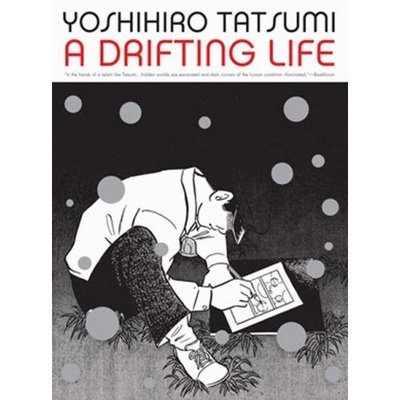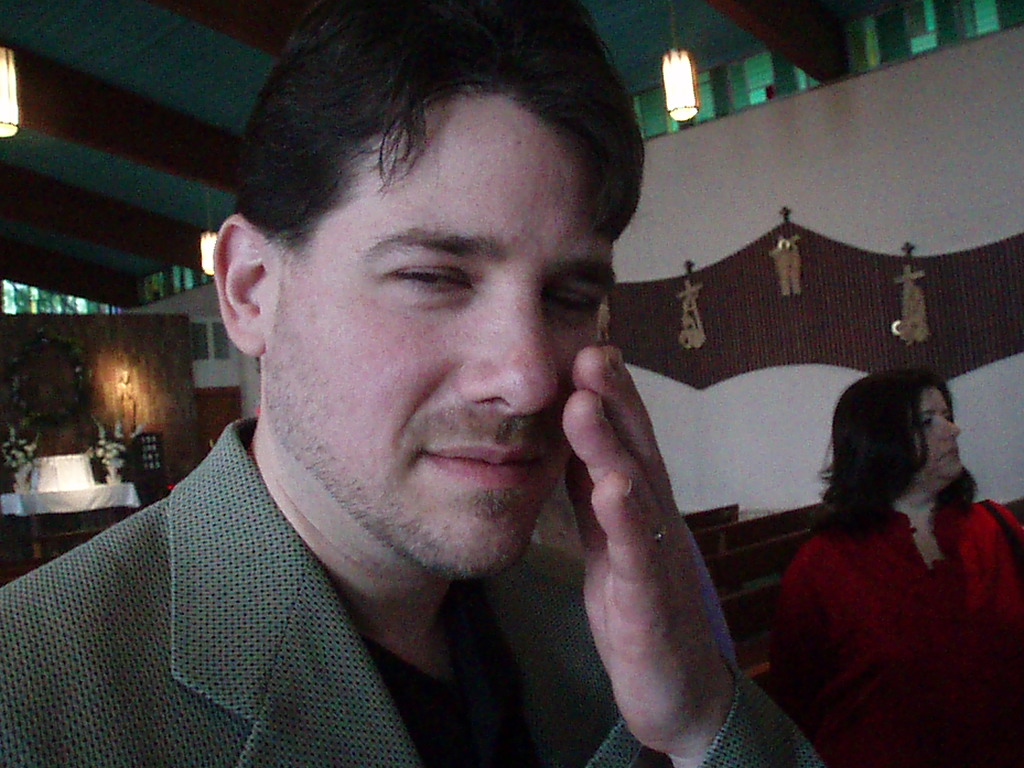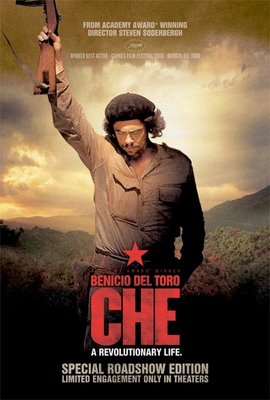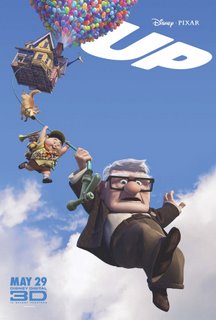
Took a visit to the Nyack Public Library, today - well-stocked, but perhaps a little ramshackle in the staffing. The visit was actually the culmination of a minor thread in my life for the last few weeks - trying to get my hands on a copy of
A Drifting Life, a new graphic memoir by veteran manga artist Yoshihiro Tatsumi. I have to confess, here, that I'm largely ignorant of manga and only know of Tatsumi through this book, but I took it as a given that he's a giant in the field (having started working professionally at the age of 16, in 1951), and I had faith that the 800+ page book was going to be worth reading.
However, it's not that easy getting your hands on a book like this that you're not willing to spend money on. My first attempt was back in March, visiting the Tappan Library to see if they had it in stock or if they were going to. I tried to sell them on it as an important book (I always get evangelical about libraries increasing their comics stock). The reference librarian very kindly took down all the information and said she'd let me know. Indeed, she did, sending me an email a few days later profusely apologizing that the Tappan Library wouldn't be using their funds to order it. But (she continued), the county-wide database did show that someone might put it on order at another library. So don't give up hope!
I gave up hope. Which was premature, because several weeks later, this amazing woman actually sent me
another email, informing me that the Nyack Library had gotten it, and she'd try to get them to send it over.
I owe this woman some thanks. When's the last time that a someone - let alone a complete stranger - was that thoughtful to you? Hell, even if you say, 'she was just doing her job!,' when's the last time you met someone with that level of dedication to their job? Hold on...
... and I'm back, having just written the woman a letter of thanks.
My reasons for wanting to read the book - beyond just being tantalized by the reviews I'd read - largely stemmed from a couple of years back, while I was still teaching comics at the local art center. Most of the kids in class had manga as their touchstone for what comics are - and I have always had an ambivalent (at best) relationship with the canon. I'm just the right age to have witnessed the first serious explosion of more artful manga into America, with the one-two release of
Lone Wolf & Cub and
Akira, both high-profile translations that likely owed their release to the rise of Frank Miller, who had mined the works and the genre for inspiration. At least, that's how they were marketed at the time.
And me? In that era, I was just moving from my all-Marvel/DC diet to the fringes of the underground/alternative/independent/whatever they were calling it that week, and having grown up with the after-school diet of watered-down anime like
Battle of the Planets, so I was pretty receptive to reading it. But I didn't like it. All of the qualities that Scott McCloud praises in manga in
Understanding Comics were present, but it was those very qualities that left me cold.
For starters, it was difficult to see the two works (as different as night and day) as anything other than pastiches of American genre works - a complaint I still lob at both manga and European genre comics. It's understandable - 20th Century American culture really seduced geeks the world over, much as Moebius translations in
Heavy Metal did in the 70's and 80's and manga and anime do with American geeks, now.
Those qualities that I didn't like would be a little hard to parse, since I find I like most of them just fine when I encounter their effects in Western comics - I'll get to this - but when collected in one place at the source, it didn't work for me. And the more I encountered manga and more serious anime - going to RISD, a lot of it was forced on me - the less I found I liked it. My biggest complaint was the sameness of the work that I saw and the general thinness of presence.
Beyond (admittedly) looking very, very cool, all of these dystopian robot lesbian stories had nothing on serious science-fiction. The famous Yakuza riff
Crying Freeman was tedious and repetitive, lurid without being actually titillating. And it all seemed like stuff I'd seen done before - and better - in American movies. While very little influence of Western comics is felt in manga, it's clear that American movies are the template for much of the work. Note: I'm pleased to say that this little observation of mine was borne out by
Drifting Life, where the lead character endlessly details his obsession with American movies and detective novels.
Next: More manga




